The Power Of Music – Santa Maria College
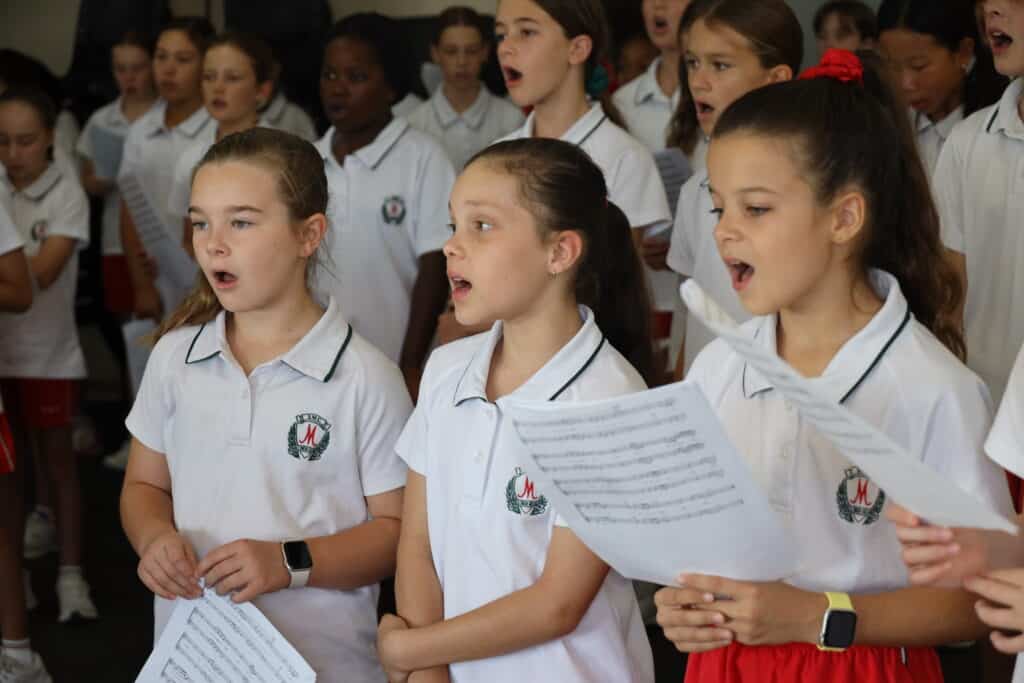
While I would never describe myself as a particularly musical person, I have always had a deep appreciation of the power of music, from learning to play the recorder as a child to belting out Michael Jackson as a teenager and, more recently, Ed Sheeran ballads. One of my great regrets in life is that, other than the recorder, I have not learned a musical instrument. I would love to play the guitar or the saxophone. Many of our Sisters of Mercy also played an instrument and had beautiful voices, so music has been at the heart of the College since its foundations.
Music has long been an integral part of the childhood experience, from lullabies sung to babies in their cribs to songs sung around campfires and Christmas carols. In this blog, we will explore the benefits of music to people, whether listening, singing, or playing an instrument.
The students of Santa Maria College recently participated in Rock Ya Socks Off, an event that showcases their immense musical talent. The concert features student bands from Years 8 to 12 performing covers of popular songs to a live audience. The student bands bring their individual flair and style to the stage, creating an exhilarating atmosphere.
Beyond being just a night of entertainment, Rock Ya Socks Off offers Music students a valuable opportunity to refine their skills and gain experience performing in front of a crowd. This highlight of the music calendar serves as a celebration of the passion and talent of Santa Maria students.
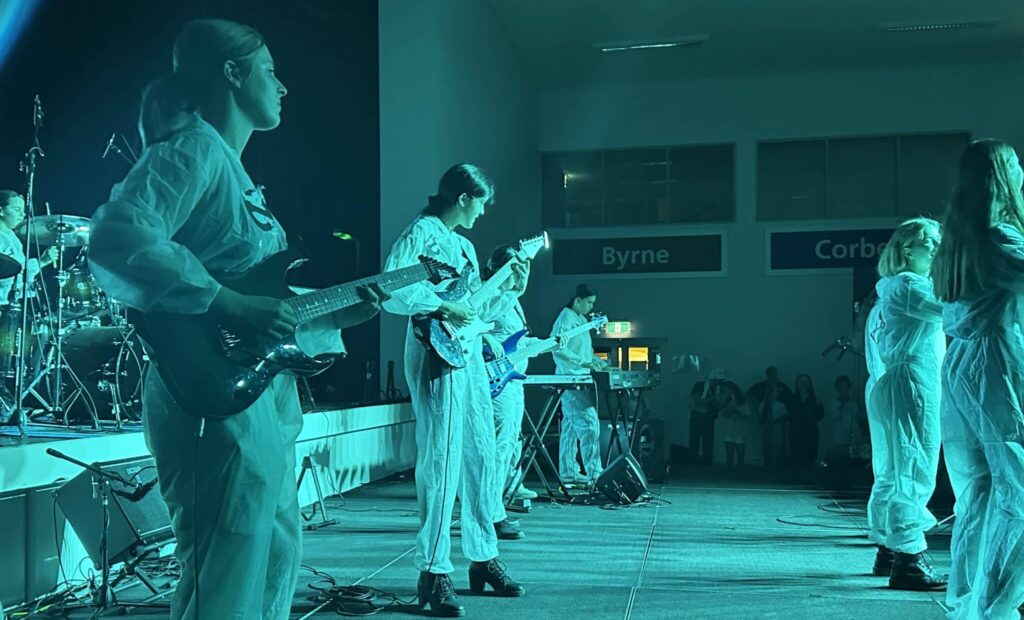
Paul Kinsella, our Head of Music, says the benefits of learning music are very well documented. Students who study music develop self-discipline and resilience through practical studies and performance. They experience boosts in confidence and wellbeing through performance and sharing their musical gifts with and for others. At its core, music is an art form that has a powerful ability to affect us emotionally and put our minds at ease in times of stress or sadness or lift us up through the joy of song.
Ciara Smithies, our Music Captain, eloquently expressed her love for music, stating that it provides a channel for her creativity to flourish and helps her develop her self-confidence. Through music, she is able to explore her capabilities outside of academics and finds great joy and fulfilment in pursuing her passion.
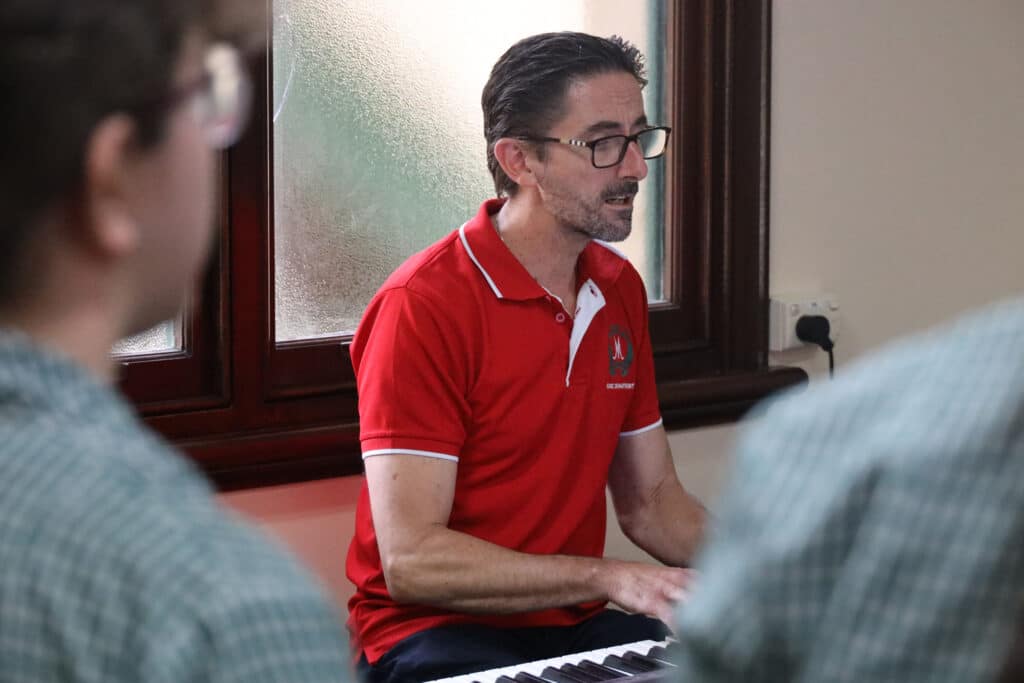
Music has been shown to promote brain development by:
- Teaching discipline – students are required to set aside time to practice if they are to master their instrument. This increases the capacity to perform tasks that require sustained commitment and attention.
- Enhancing pattern recognition – which develops math and pattern skills. Students use these skills to solve math, art, engineering and technology problems.
- Developing motor skills – playing music can improve hand-eye coordination which helps the development of other skills such as writing.
- Promoting literacy skills – students exposed to music tend to develop language and literacy skills such as phonemic awareness, reading comprehension, and vocabulary at a faster rate.
- Improving memory and concentration – according to a study published in Psychology of Music, students exposed to music training have improved working memory and attention spans. This is because music stimulates different areas of the brain, which can enhance cognitive abilities.
Music has been shown to promote academic achievement by:
- Impacting IQ – A study published in the journal, Intelligence found that children exposed to music training have significantly increased IQ scores. This is believed to be because the brain has to work harder to process complex sounds and rhythms, which can help improve cognitive abilities.
- Encouraging persistence – Learning music promotes craftsmanship, and the desire for high standards of performance encourages commitment. This desire can be applied to all subjects they study and encourages perseverance, resilience and a drive for excellence.
Music has been shown to promote wellbeing by:
- Enhancing our emotions – Music has the potential to energise how we feel or calm us in times of anxiety and stress. Boosting our mood and helping to monitor and manage our own emotions also helps students process and express their feelings. Music may be calming, making us feel more positive or be comforted by our favourite songs during difficult times. Music is a great way to develop positive mental health, release stress, and, most importantly, have fun. Mr Kinsella spoke of the joy and pleasure of music; even after so many years of teaching, he finds new pieces that inspire him.
"I love music because it is an outlet for any stress I am feeling at the time and an opportunity to express myself through something I love, either music class, choir, music lessons or at home. Music class creates an environment where I can be comfortable in myself and form friendships with people who share similar passions to me."
Tessa Pickett, Year 12 O'Reilly
- Encouraging creativity – Music encourages students to tap into their creative potential by experimenting with sounds and melodies. This can help children develop their imagination which can be beneficial in all areas of their lives. Music gives our girls a means to express themselves to unleash their creativity and provides them with a positive outlet for their energy.
"I love music because it is a way to freely express myself and spend time with friends. Over the past year, I have started writing my own music and songs, it allows me to sing and play with an emotional connection to music in an original way."
Ashleigh Farrell, Year 12 de la Hoyde
Music has been shown to promote community by:
- Building a sense of belonging – As Ted Turner said, “Music has a great power to bring people together. With so many forces in this world acting to drive wedges between people, it’s important to preserve those things that help us experience our common humanity.” A passion for music forms the basis of some of the great friendships our girls form through being part of our music community.
- Encouraging Connections – Music has an incredible ability to bring people together. From concerts and events to musical collaborations, there are countless ways in which music connects us to one another and provides a platform for people to come together and enjoy a shared experience. Whether it’s dancing to the beat of the music, singing along to the lyrics, or simply basking in the crowd’s energy, music brings people together in many ways. At the recent Rock Ya Socks off concert, for example, people of all ages and backgrounds came together to experience the transformative power of music. As the performers took the stage and the music began to flow, the audience was swept up in a feeling of unity and connectedness.
"I love music because I love playing the violin and hearing beautiful harmonies. Playing in the String Orchestra brings me the most joy because I love being in a group and I love the sound that all of us make together. The music community is extremely welcoming and kind, and I love everything about it. Music is a source of pride for me, and I just love it."
Vanessa Knyn, Year 12 O'Reilly
- Promoting collaboration – Being part of a choir, band, or orchestra requires teamwork. In these groups, students will learn how to collaborate and build camaraderie. Each student is relied on by others to do their best, helping them to develop self-confidence and to feel valued for their talents. When people with different backgrounds and perspectives come together to make music, they create something beautiful and build stronger, more diverse communities. Making music involves cooperation and communication, skills that can be easily transferred to other aspects of life.
- Uniting Cultures – When people share their musical traditions with each other, they are fostering a sense of curiosity and appreciation for different customs and ways of life. By exposing ourselves to new music and new cultural perspectives, we can expand our own worldview and gain a greater appreciation for the diversity of the human experience.
- Encouraging Social Change – Music can be used as a powerful tool for social change. From protest songs to benefit concerts, music has historically played a role in movements for social justice and equity. It can be used to amplify marginalised voices and bring attention to important issues, inspiring people to take action in their communities.
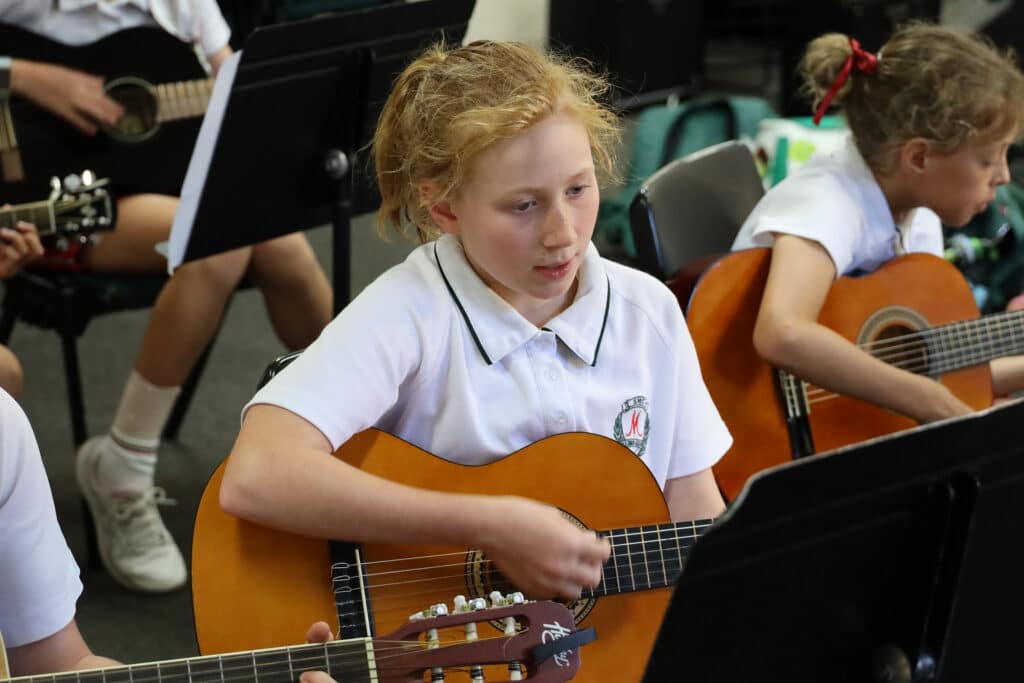
We firmly believe that music education can have a profound impact on brain development, academic achievement, building community and promoting positive wellbeing, which is why we are so passionate about providing an inclusive space where students can explore and express themselves through the magic of music. Our Music staff are dedicated to equipping students with the knowledge and skills they need to reach their full potential – whether they are hoping to become professional musicians or simply using music as a way to enrich their lives.
Parents can be more confident than ever that an investment in music lessons or your daughter’s commitment to a choir, band or ensemble will deliver lifelong benefits for individuals of all ages. Music education is an invaluable and essential part of education for young people and is at the heart of our community. It is never too late to learn music, even for adults.
The construction of the Cultural Centre, which will be the new home for our Music program, will commence in August of this year. Our Music program is already amazing, but just imagine what we will be able to deliver once we have a purpose-built dedicated space. With the new facility, our Music program will have even more opportunities to explore and create.

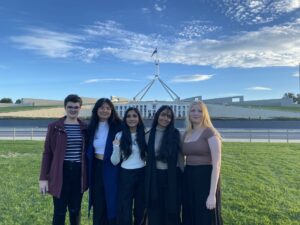
Lee-Elle’s Insights from the ‘Make it 16’ Forum
Lee-Elle Cooper is a passionate Year 12 student who advocates for youth engagement and political participation. She has recently returned from the Make It 16 Forum in Canberra.

With Laurissa Knowles From Valley Depths to Mountain Peaks (1993)
Laurissa Knowles (1993) has had an incredible career journey so far, from Santa Maria College Teacher to Celebrant and Councillor.

Elevating Spaces: Diana Ellis’ Signature Touch & Architecture Magic
What happens when you mix a love for art, travel, nature, and creativity with construction and building? You get the essence of Diana Ellis’ career!
Author: Santa Maria College
Santa Maria College is a vibrant girls school with a growing local presence and reputation. Our Mission is to educate young Mercy women who act with courage and compassion to enrich our world. Santa Maria College is located in Attadale in Western Australia, 16 km from the Perth CBD. We offer a Catholic education for girls in Years 5 – 12 and have 1300 students, including 152 boarders.







